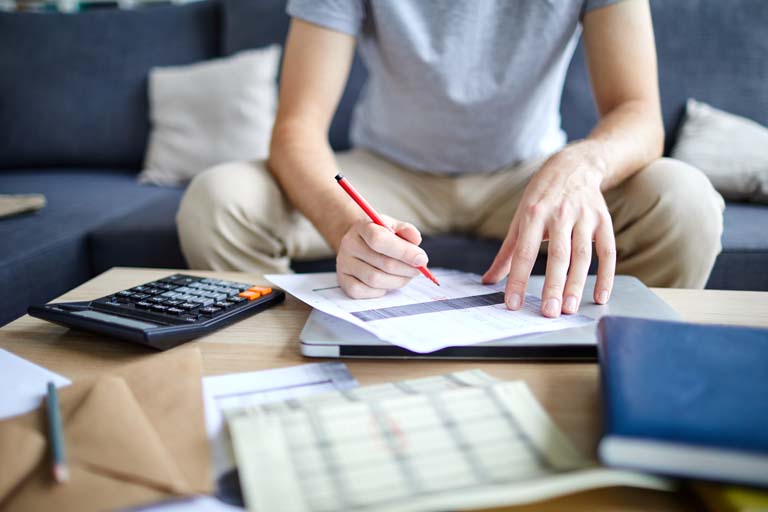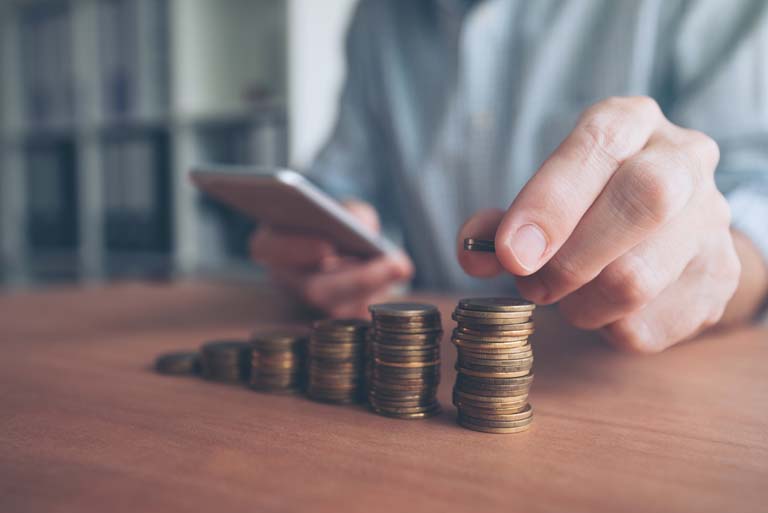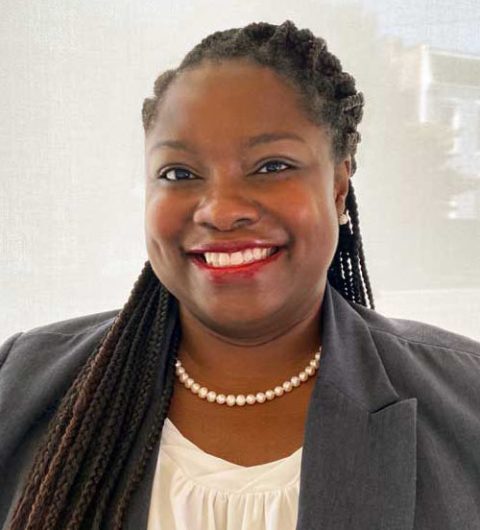Chapter 7 Bankruptcy Attorneys
Specializing in bankruptcy, the Richmond bankruptcy attorneys at Cravens & Noll are here to provide legal aid and other resources to persons seeking debt relief. Chapter 7 bankruptcy can oftentimes be a frightening thought. If you’ve been dealing with the stresses of financial debt, instability and other issues like:
- Wage garnishment
- Bank garnishment
- Credit card debt
- Medical Bills
- Mortgage debt
- Tax debt
- Creditor harassment

It may be time to consider the legal services of our debt relief lawyers. Servicing the Richmond, Colonial Heights, Fredericksburg, Hopewell, Petersburg and surrounding Virginia areas, we can help individuals dealing with financial burdens where bankruptcy is the best resolution.

Types of Debt & Virginia Exemptions
It’s time to consider filing for Chapter 7 Liquidation in the state of Virginia if you are:
- Unable to pay the monthly minimum on your credit cards
- Constantly harassed by debt collectors
- Having your wages garnished
- Threatened with possible judgements
- Experiencing other difficult debt situations
Chapter 7 bankruptcy can give debtors an outlet to clear them of their unsecured debt while in most cases keep all of your property. Our experienced lawyers, with over a thousand cases handled, can give you the proper representation to ensure you get a chance to effectively regain your financial footing.
Chapter 7 Can Clear You of Unsecured Debt
Unsecured debt is any debt that you may owe on that is not backed by tangible collateral. This type of debt can include:
- Credit card debt
- Medical bills
- Personal loans
- Balances on certain kinds of loans
These may be able to be cleared through the filing process of Chapter 7 bankruptcy.
Alongside a successful Chapter 7 filing, a debtor can gain:
- Debtor education
- Credit counseling
- Ability to re-build credit
- Qualify for credit better than prior to filing bankruptcy
Exempt and Non-Exempt Assets in Virginia
Federal bankruptcy law requires bankruptcy candidates to go under a means test to see if they qualify for Chapter 7 bankruptcy. These particular requirements indicate the level of income from the debtor to determine their financial repayment capabilities and whether or not their property can be used to pay creditors. With the help and counsel of qualified bankruptcy attorneys Chapter 7 filers typically are able to keep their property.
Virginia law allows Chapter 7 debtors to keep different types of property up to certain limits per person, such as:
- Vehicle equity up to $6,000.00
- Household goods and furnishings up to $5,000.00
- Clothing up to $1000.00
- Firearms up to $3,000.00
- Home equity up to $25,000.00
Additionally, there is what is called the “Homestead Exemption” of $5,000.00 that can be used for any other property such as a savings account, jewelry, etc.
At the law office of Cravens & Noll, we prepare and file Chapter 7 bankruptcy petitions for debt and income-eligible clients. We review your financial situation and determine if you qualify based on the state exemptions, your exempt and non-exempt assets, secured and unsecured debt.
What Happens to The Rest Of Your Property In Chapter 7 Bankruptcy?
Once you file for bankruptcy, an automatic stay is placed on your property. This means that debt collectors, collection agencies and banks are required to halt all collection, repossession and foreclosure actions against you.
This stay is temporary, however. After filing for bankruptcy, if you are still unable to pay your mortgage, your bank can foreclose on your home. However, because Chapter 7 discharges your unsecured debt, you may have enough disposable monthly income to continue payments on your mortgage. If you have fallen behind, your bank may be willing to provide a restructured payment plan to allow you to pay a little extra every month until your past due mortgage becomes current. In Chapter 7 bankruptcy, there may be ways for you to keep your house and car.
Your Car After a Chapter 7 Bankruptcy:
People who file for Chapter 7 bankruptcy are usually able to keep their cars if they are able to maintain payments on them. In some situations, however, a bank or car dealership may ask for you to sign a reaffirmation agreement.
However, these agreements are not always in your best interest, especially if the debt on a car is more than the car’s equity.
Our lawyers can review the specifics of your situation and advise you as to whether or not you should sign a reaffirmation agreement in Virginia.
Rebuilding Your Credit After Bankruptcy
There will be impacts after filing for bankruptcy. Although a filing will stay on your credit report for ten years, filing bankruptcy can benefit you in the long run.
- When your debts are discharged, defaults are stopped and debts are no longer reported as delinquent or in default.
- You will appear to be a less of a risk for creditors. Since you cannot file for a Chapter 7 bankruptcy again for eight years, many creditors will see you as a being better able to pay your debts in the future. Because they see you as a good risk, many creditors will be willing to offer you credit cards and other news of modest limits. If you accept a small number of these credits lines and keep up with your payment, you can begin small with rebuilding your credit. This increases your limits and can result in receiving better rates over time.

After Bankruptcy: Bankruptcy Is Not the End of the World
At Cravens & Noll, we are here to give you a professional debt-relief strategy and a chance to regain your financial stability.
If you’re facing mounting debt that is preventing you from staying current on your home mortgage or other bills, contact our bankruptcy lawyers at Cravens & Noll today to schedule an initial consultation to discuss your case.
Chapter 7 Bankruptcy FAQ
Multiple factors are looked at including income, expenses, home equity, etc. The best way to determine what chapter you qualify for is to call our office and set up a free consultation with one of our bankruptcy attorneys.
Eight years from the date of filing.
It depends on the specifics of your case, but most of the time you can keep your home. If there is no or very little equity in the house (the value of the home minus the mortgage) you most likely will be able to keep your home. If you are facing a foreclosure on your house, a Chapter 13 bankruptcy has the potential to halt the foreclosure and save your home to allow past due mortgage payments to be paid over time.
Most people who file bankruptcy will not lose their house hold property, cell phones, etc… The main goal for bankruptcy is to get rid of your debts and give you a “fresh start”. So that you can start fresh, there are a number of standard exemptions as to the value of property you can keep, and most people own property under these assigned values. We will analyze your specific situation to determine if you will lose anything prior to filing your case.
Yes. You have to list everything even if you don’t think it is important. We work with our clients to make it simple to account for all property you own and make sure it is listed on your bankruptcy paperwork. Failure to list all of your property could make you subject to being denied a discharge of your debts.
Your Bankruptcy Lawyers In Virginia
Giving You Peace of Mind — Our attorneys have over 30 years of experience representing clients who are facing extraordinary challenges. Every case is unique, and that’s why you need professional legal counsel to help you decide your next steps. Contact one of our attorneys today to learn more.

J. Thompson Cravens
President
Joe Cravens is a proud veteran of the United States Army and has practiced in the areas of personal injury, criminal law, domestic relations and military law for over 30 years. He is a life member of the Million Dollar Advocates Forum.
View Profile
David Edward Noll
Managing Attorney
David Noll’s primary focus is working directly with his clients in order to strongly advocate the best possible result. He has been representing Virginians for over two decades in all things civil litigation.
View Profile
W. Allan Burns Jr.
Partner
Allan Burns is a University of Richmond Law School alum. He excels in the areas of family law, bankruptcy, business law and personal injury.
View Profile
Tameka W. Robinson
Senior Associate Attorney
Tameka Robinson is passionate about equal access to justice and juvenile justice issues and taking care of her community. She is engaged in various community service events, cheers for her hometown teams, the Yankees, Giants and the Knicks and loves traveling wherever the road may lead.
View Profile
Kent Benninger
Attorney
Kent Benninger graduated from Liberty University both undergraduate and Law before moving to Richmond in 2016. He began his career with a focus on Criminal Law.
View Profile
Eppa Hunton VI
Attorney
Eppa Hunton grew up in the Richmond area before falling in love with the Shenandoah Valley while attending Washington & Lee University in Lexington. He now heads Cravens & Noll’s Harrisonburg office and enjoys exploring the natural beauty of the area.
View ProfileRequest a Consultation
Get your case reviewed within 24 hours.
